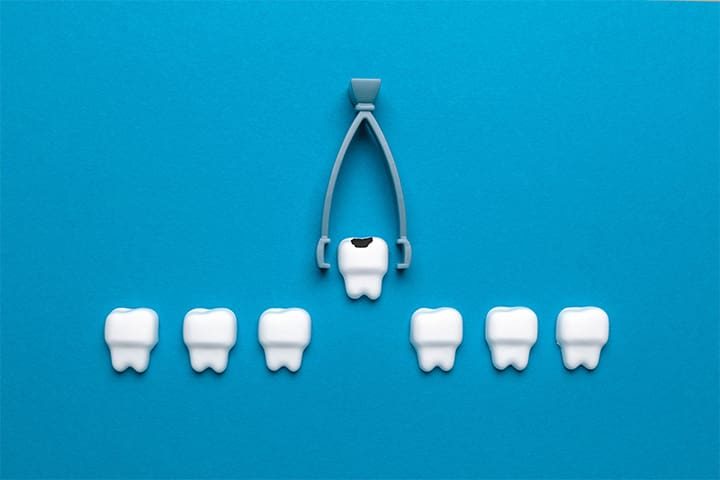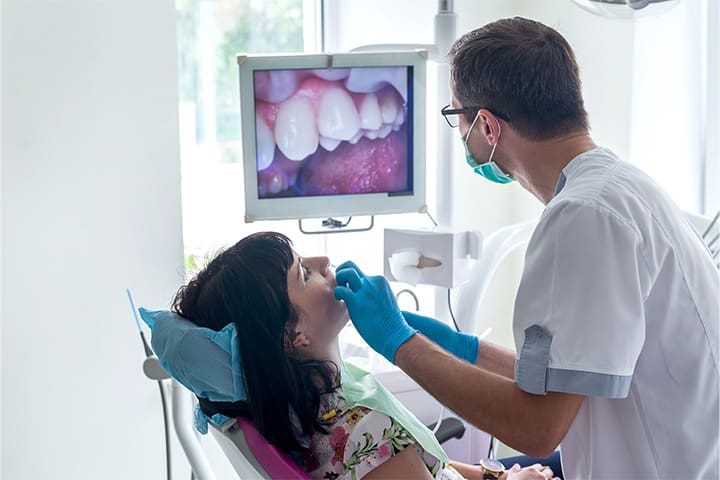Gently Remove Problem Teeth
Our goal at Melrose Dental Group is to help our patients protect and preserve their natural teeth for as long as possible. But, when a tooth becomes so decayed or damaged that it’s impossible to repair, the only option is to remove it. This can put an immediate stop to pain and infection, and our team goes above and beyond to see patients quickly and keep them comfortable. If you have a tooth that may need to go, reach out today.
Why Choose Melrose Dental Group for Tooth Extraction?
- Same-Day Emergency Dental Appointments
- Voted as Top Dentists in Boston Magazine
- Restorations Created by Dental Ceramic Artisan
Reasons Why Tooth Extractions Are Necessary

Our team may recommend a tooth extraction if:
- A large cavity or filling that takes up most of the tooth is failing.
- There is a crack or decay far below the gumline.
- Gum disease has greatly weakened the stability of a tooth.
- More room is needed to ensure a denture fits securely.
- The teeth require more room to shift in response to orthodontics.
- A baby tooth won’t fall out naturally and is blocking an adult tooth.
The Process of Removing a Tooth

Thankfully, removing a tooth is a fairly straightforward procedure that our team has completed hundreds (if not thousands) of times, so we know how to make sure the patient barely feels anything in the chair.
First, we’ll apply local anesthetic to the area, and once you can’t feel anything, we’ll elevate the tooth with a special instrument, and then lightly rock it back and forth. This causes the connective tissue to gradually separate, letting the tooth come out easily. There is no pulling involved at all!
Tooth Extraction Aftercare

We’ll place gauze over the treatment area immediately following your extraction as some bleeding is expected. Plan to just relax the rest of your day after the procedure—you’re probably overdue for a break anyway! You’ll be asked to avoid the following for the next 24 to 48 hours:
- Harsh rinsing
- Hot drinks
- Drinking from straws
- Alcoholic drinks
- Mouthwash with alcohol
- Smoking
- Strenuous activities
Doing so will enable your gums and jaw to heal quickly, letting a blood clot form. Some soreness and swelling are common as well, but all of these symptoms should be relatively minor and brief. You can likely return to work the next day if your job isn’t physically strenuous. If it is, then you should plan to take one or two days off.
